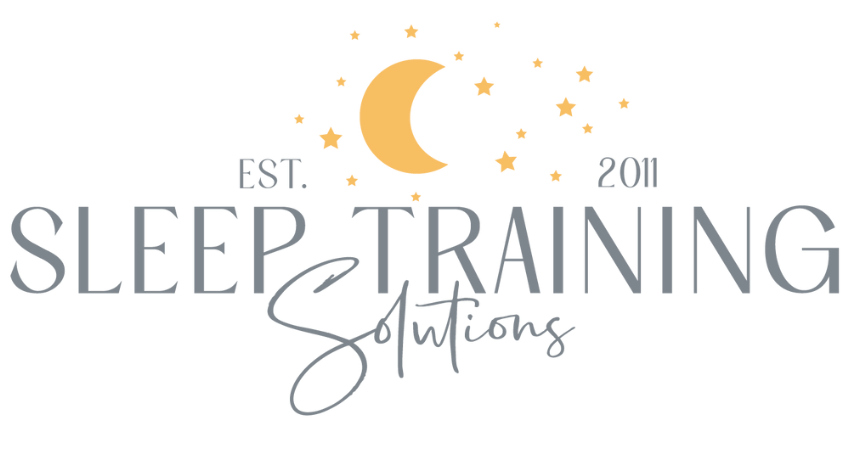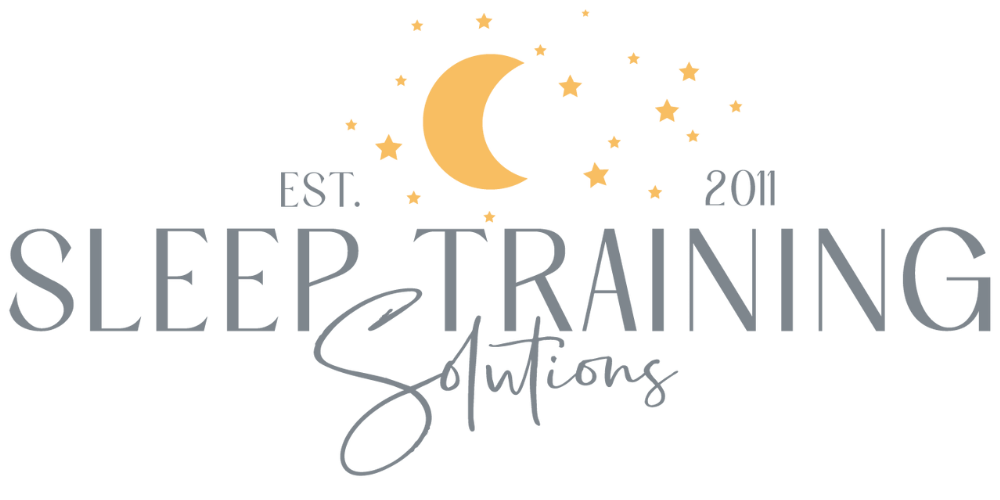Teething and Sleep: Understanding the Impact on Your Baby's Naps and Bedtime
Navigating sleep while teething
Teething and sleep – two essential aspects of our baby's growth that often collide, leaving parents with questions and concerns. Parents often wonder how teething affects their little one's sleep and what they can do to support them during this phase. The good news is that although teething can make babies uncomfortable, they won't remember the process of getting those new teeth! In this post, we’ll explore teething and its impact on your baby's sleep to equip you with the best strategies to help them through this challenging time!
Signs of teething
Here are some common signs of teething:
Baby drooling more than normal
Fussy/irritable all day
Swollen gums and/or bumps on the gums
Whitening of gums
Grabbing at mouth or trying to chew on everything
Extra clingy
Low-grade fever - Always consult your pediatrician if you're concerned about your baby's fever.
Looser stools
Seems uncomfortable eating - Sore gums can make eating uncomfortable for your baby, leading to changes in their feeding behavior.
Red cheeks (almost like a rash)
Painful cries (sometimes out of nowhere)
Can Teething Affect Naps and Sleep?
Absolutely! When those tiny teeth start pushing through their gums, it can be quite uncomfortable for your little one. As a result, they might find it harder to settle down for naps or sleep through the night.
But teething can impact babies' sleep experiences differently based on their sleep skills. Prior to sleep training or when a baby can easily fall asleep on her own for bedtime and naps (and put herself back to sleep in the middle of the night), teething can lead to multiple night wakings, with babies looking for mom’s or dad’s help to get back to sleep. The discomfort from teething can make it challenging for them to self-soothe and settle back into sleep on their own.
On the other hand, babies who have learned to fall asleep independently tend to "get through" teething with fewer night wakings. Having the ability to self-soothe allows them to cope with the discomfort a little better and often return to sleep on their own when they wake up during the night.
I can speak to this personally. My son had six major surgeries prior to sleep training at 18 months and eight after sleep training. His sleep when he was teething or after a surgery (both of which include pain and discomfort) was miserable…for both of us. He was up hourly whether he was getting a new tooth or recovering from a procedure! After sleep training, it was a completely different experience. I never saw teething affect his sleep again, and he would sleep through the night with one dose of Tylenol after each surgery.
Having independent sleep skills and being able to self soothe makes a MAJOR difference when your child is going through something that makes him uncomfortable!
How Teething Affects Sleep?
As those tiny teeth emerge from their gums, your little one may experience discomfort, irritation, and soreness. These sensations can disrupt their ability to fall asleep, stay asleep, and even affect their overall sleep quality. Here are some specific ways teething can affect your baby's sleep:
Difficulty falling asleep: The discomfort from teething can make it challenging for your baby to settle down and fall asleep. They may feel restless and fussy, finding it difficult to relax.
More night wakings: Teething can lead to more frequent awakenings during the night. As your baby's gums become sore and tender, they might wake up seeking comfort and relief especially if you gave a pain reliever at bedtime and it’s worn off after 4-6 hours.
Shorter naps: The discomfort of teething can also disrupt your baby's daytime naps. They may have trouble staying asleep for their usual nap durations.
Seeking comfort: Babies often seek comfort from their caregivers during teething. They may want to be held, cuddled, or nursed more frequently as they try to soothe themselves.
Increased crying: The discomfort and pain from teething can cause your baby to cry more than usual, especially during sleep times.
Nursing and feeding changes: Some babies may experience changes in their feeding habits during teething. They may be reluctant to eat due to the soreness in their gums. Many times babies will want shorter, more frequent feeds.
Restlessness: Teething discomfort can make your baby feel restless during sleep, leading to more tossing and turning.
Waking up unsettled: When babies wake up in the middle of the night due to teething discomfort, they may have a harder time settling back to sleep.
Irritability: Teething can make your baby feel more irritable during the day and night, impacting their overall mood and demeanor.
How to get a good look at your baby’s gums
To get a clear view of your baby's gums, try using a clean, wide mouth glass and press the edge lightly against your baby's gums. This trick allows you to see any bumps or incoming teeth that may be causing the teething discomfort.
There are so many pieces to successfully sleep training - Download your free PDF to help set you up for success!
Tips to Ease Teething Pain
Fortunately, there are several ways to help alleviate your baby's teething discomfort and promote better sleep for both of you.
💕 Chilled teething toys: Offer your baby a variety of chilled teething toys that are easy to hold and safe to chew on. The coldness will provide relief to their sore gums.
💕 Gentle gum massage: Using clean hands, gently rub your baby's gums to ease the discomfort.
💕 Offer cold (or slushy) foods (like super cold applesauce that’s been in the freezer) over warm/hot foods.
💕 Cold washcloth: Freeze a clean, wet washcloth in a Ziplock bag and let your baby chew on it. The texture and coldness can soothe their gums.
💕 Breastmilk popsicles: Freeze breastmilk into popsicles and let your little one enjoy the cold treat while soothing their gums.
💕 Clove oil remedy: Dilute clove oil in coconut oil and apply it gently to your baby's gums. Alternatively, dilute it in water and soak the washcloth before freezing it.
💕 Ask your healthcare provider about over-the-counter pain relievers and natural remedies. Avoid anything with benzocaine, which the FDA does not recommend.
💕 Comfort and cuddles: Offer extra cuddles and comfort to your baby during this challenging time. Sometimes, all they need is the reassurance of your presence.
If you have specific questions about whether a remedy is right for your child, reach out your pediatrician.
Try to make your child as comfortable as possible, without backsliding in the sleep dept. If your child was an independentl sleep prior to teething, make sure your baby is as comfortable as possible, but try not to go back to feeding or rocking to sleep.
Best teething toys and natural remedies
Some teething toys that my clients have raved about:
Teething Ball & Training Toothbrush
The Very Hungry Caterpillar Rattle Teether with Links
Set of 3 Silicone Teething Rings
And teethers to freeze:
No Mess Frozen Baby Teether - Baby popsicles!
Natural, over-the-counter remedies without benzocaine - it’s a great idea to get one of these to keep in the medicine cabinet for when teething hits and you don’t have to wait 2-3 days for shipping!
Baby Nighttime Soothing Tablets
Soothing Gel with Silicone Massaging Toothbrush
Is it Teething... or Something Else?
Sometimes, it can be challenging to determine whether your baby's sleep disruptions are solely due to teething or if there might be other factors at play. Here are some helpful tips to differentiate teething-related sleep issues from other possibilities:
If your baby seems pretty happy during the day and is only crabby at a certain time (i.e., bedtime), it's likely NOT teething. Other factors, such as overtiredness or changes in routine, might be causing their bedtime fussiness.
If your baby is irritable for several days in a row but you don't see any signs of teething, it's best to check in with your pediatrician. There could be other underlying reasons for their discomfort.
Remember, teething is a natural part of your baby's development and thankfully it’s temporary. Every baby's experience is different, and each baby can have a different experience with each new tooth (especially if self soothing and sleep skills have imporoved in the meantime!). Soon those precious toothy smiles will light up your days, making every teething challenge worth it!
Baby sleep during teething
Related Posts:
This post is for informational purposes only and may not be the best fit for you, your child and/or your personal situation. It shall not be construed as medical advice. The information and education provided here is not intended or implied to supplement or replace professional medical treatment, advice, and/or diagnosis. Always check with your child’s physician or medical professional before trying or implementing any information read here.
Please note that some of this site’s links are affiliate links, and Sleep Training Solutions is a participant in the Amazon Services LLC Associates Program, an affiliate advertising program designed to provide a means for sites to earn advertising fees by advertising and linking to Amazon.com and affiliated websites. I will earn a small commission, at no additional cost to you, if you purchase them.






